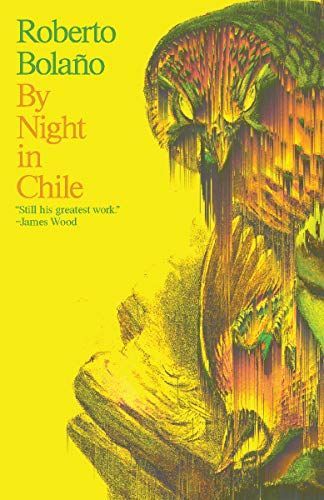
By Night in Chile
In a deathbed confession, Father Urrutia, a Jesual priest and conservative literary critic, shares his memories of his work with agents of Opus Dei and his secret job of instructing Pinochet about Marxism to the Chilean junta generals can understand their enemy. Original.
Reviews
Patrick Book@patrickb
Cody Degen@codydegen
farah farooq@farahjww
Shrini S@shrini
Rakesh S@rakeshkonni
Boxuan Mao@boxuan
Donald@riversofeurope
Donald@riversofeurope
Carroll Lachnit@carolinalb
Anthony Teo@eightants
Alithea@alithea
Hobbes@crookedbowtie
Ben@bingobongobengo
Rustė Tervydytė@ruste
Cory Forsyth@bantic
Seth Kalback@skalback
Clare B@hadaly
Hellboy TCR@hellboytcr009
Roel Vandenhoeck@rovan
Gustav Vallin@gvallin
Savas Yazici@savas
Avinash kashyap@aaekayy
Elliot Baker@elliotbaker
Terry Nguyen@nguyenterry